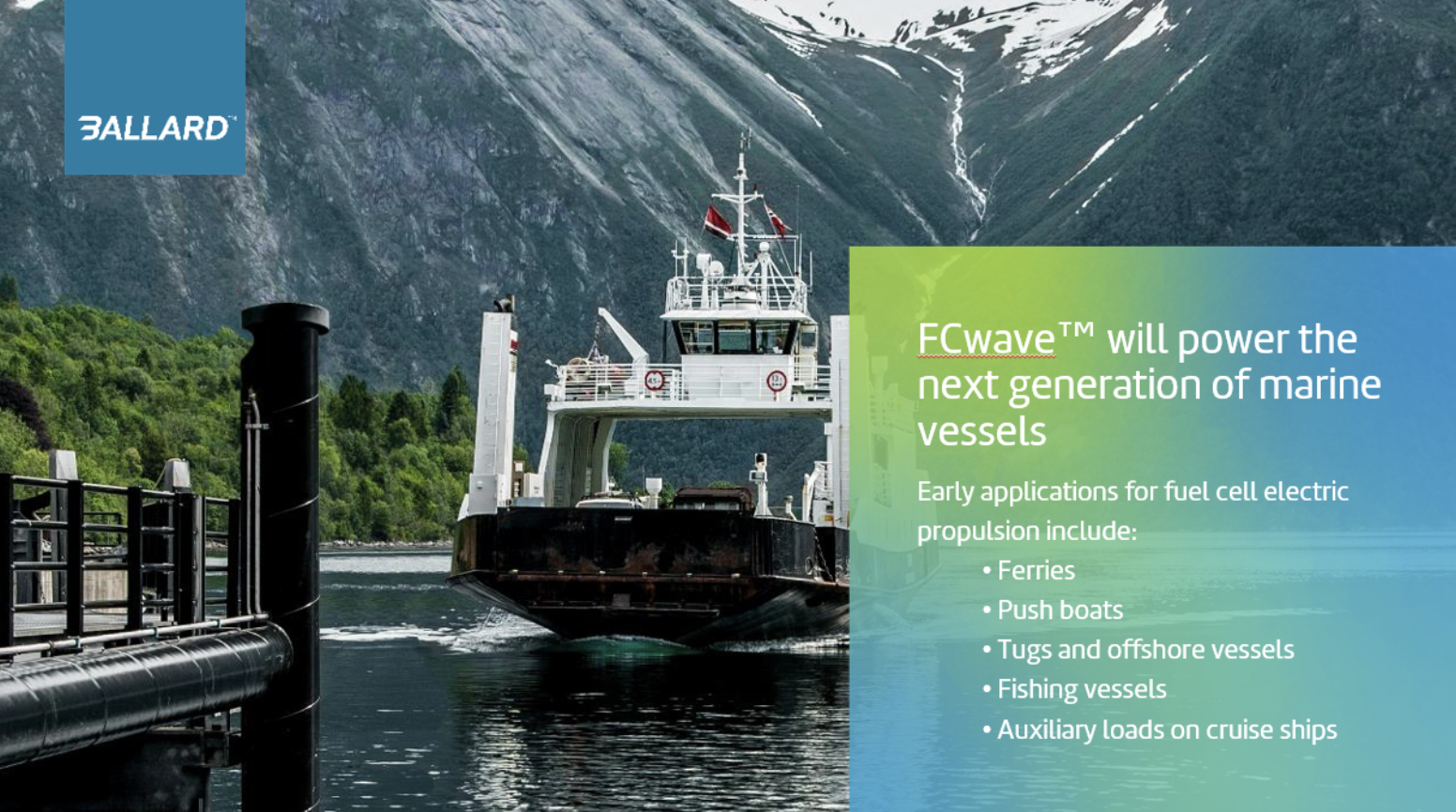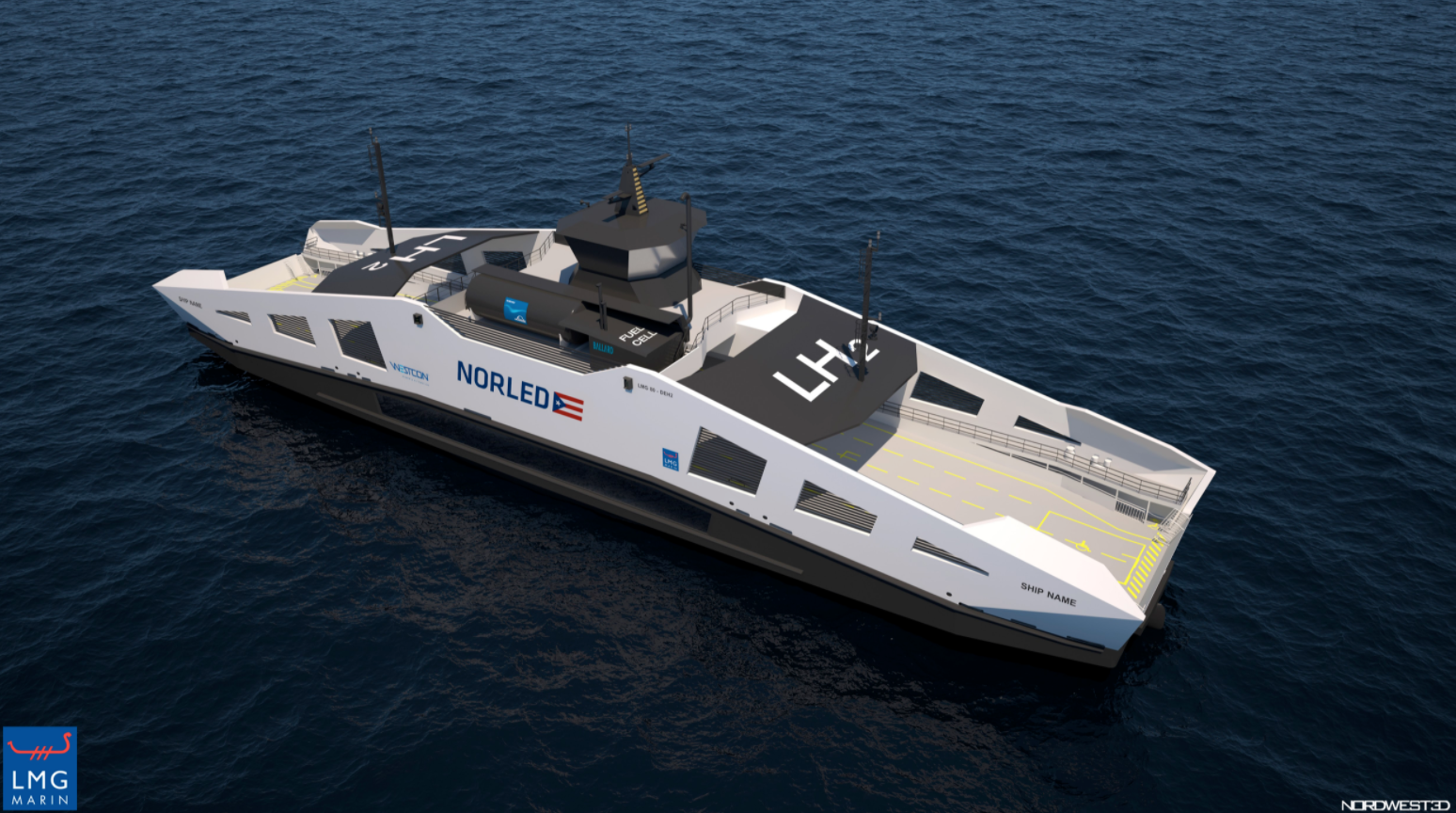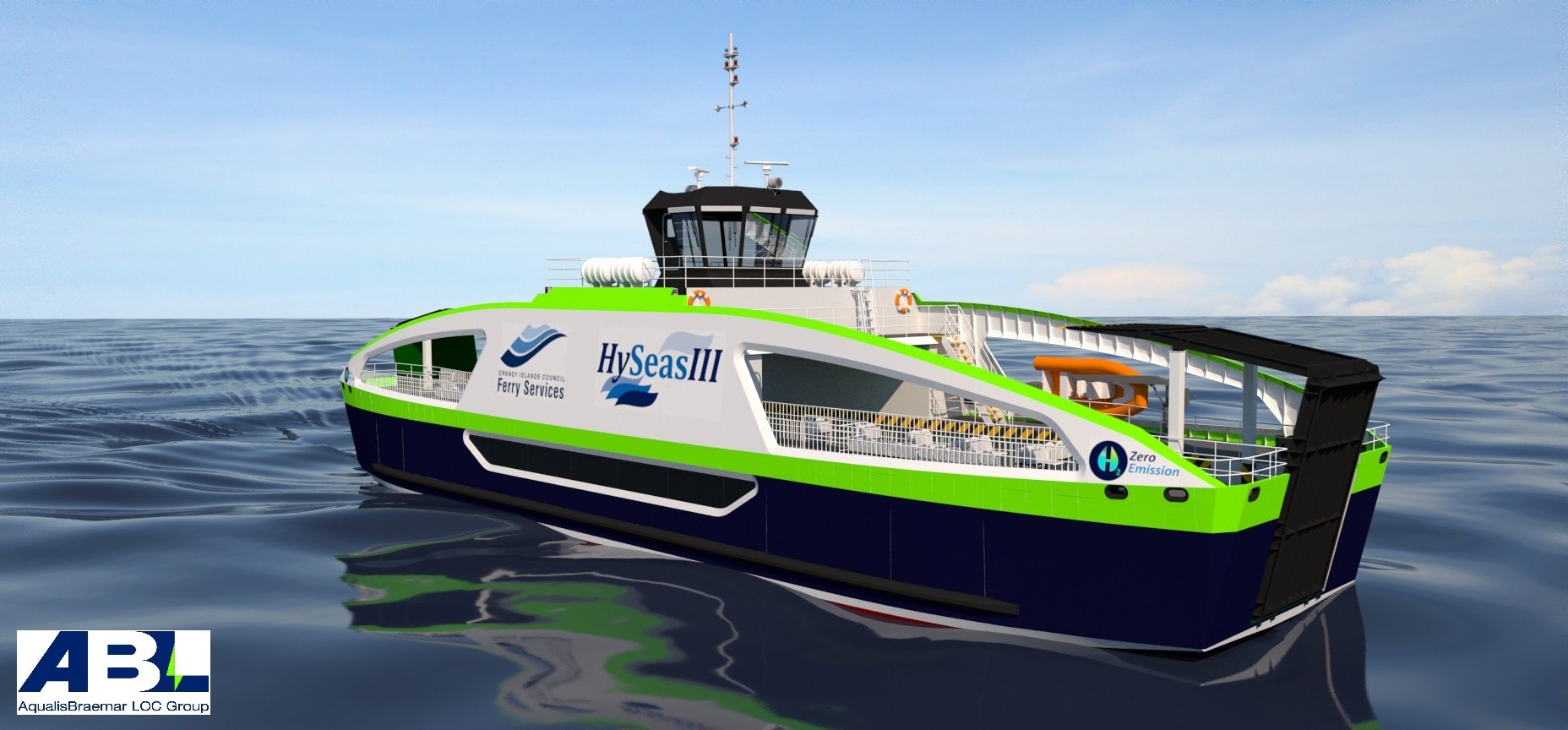
Hydrogen fuel cells are successfully powering thousands of commercial vehicles on roads around the world. Now, thanks to their success in the heavy-duty transport sector, fuel cells are also being integrated into marine vessels.
Why?
Because fuel cells are plug-and-play zero-emission replacements for internal combustion engines. They are an essential technology that will help the marine industry address greenhouse gas (GHG) emissions on the water and in ports.
In this blog, you’ll learn how the marine industry is responding to calls to reduce emissions, and how fuel cells are the best-suited technology for marine applications—allowing the industry to meet its sustainability objectives.
Why does the marine industry need to commit to zero emissions?
With 90% of worldwide trade taking place by sea, the shipping industry is a huge participant in the world’s economy but also a sizable contributor to global GHG emissions.
With a worldwide commercial fleet of more than 90,000 ships, the shipping industry accounts for approximately 3% of the world’s GHG emissions. Unless action is taken soon, these impacts are forecasted to increase, due to the expected growth in global marine transport.
Additionally, the COVID-19 pandemic has had a major impact on the maritime industry. An assessment study carried out by FuelEU Maritime shows that international maritime transport was projected to be 21% lower in 2021 relative to 2020. However, the same study also foresees that the activity will increase strongly by 2025 and beyond due to the realignment and fortification of the global supply chain.
The implications are clear. There’s never been a more urgent time to adopt technologies to decarbonize the marine industry.
The pressure to meet emissions targets
The good news is, public pressure regarding climate change and air pollution has prompted organizations and governments to take action and tighten GHG emission standards in all sectors—including the maritime industry.
As a result, the International Maritime Organization (IMO) has set ambitious targets to reduce vessel emissions and completely phase them out by the end of this century. The IMO’s initial strategy document stated that by the end of 2050, GHG emissions from international shipping should be at least 50% lower than what they were in 2008.
And the IMO is not the only organization taking initiative to reduce GHG emissions. The European Maritime Safety Organization (EMSA) plans to cut the EU’s carbon dioxide emissions from maritime transport by at least 40% of 2005 levels by 2050. Furthermore, in 2018, the Norwegian parliament announced that it would make its fjords the world’s first zero-emission zones by 2026.

There’s no doubt that the maritime sector is evolving with the times. It’s becoming more sustainable by responding to the current environmental challenges and requirements. When looking at future trends that suggest an increase in sea transport, it’s clear that now is the time for fleet operators to implement proven zero-emission technologies.
With so many different types of vessels, the marine industry is in need of a true, global solution that can be applied to all vessel types in all jurisdictions.
Fuel cell technology: The most viable solution to reduce emissions
Some maritime organizations look to batteries to power the shipping sector of the future. Batteries can be a good zero-emission power solution for smaller vessels that operate with short duty cycles—small passenger ferries and lake service boats, for example. But batteries are heavy and have a relatively low power density, therefore their practicality is limited for many applications.
The best solution for marine vessels is fuel cell technology. Being a viable, true zero-emission option, fuel cells are the solution that will put the marine industry on a zero-emission path. The technology will play a big role in helping ship operators and owners reach the requirements set by the IMO and other bodies.
How do hydrogen fuel cells work?
Fuel cells generate DC power compatible with modern ship electric and hybrid architectures. Just like batteries, they produce electricity with high efficiency through an electro-chemical process. But with fuel cells, the energy carrier is the hydrogen fuel, so as long as hydrogen is available, the fuel cell power system will act as a generator to produce electricity.
What are the benefits of fuel cell technology?
 Ballard’s FCwave™ fuel cell engine for marine
Ballard’s FCwave™ fuel cell engine for marine
- Longer range: Fuel cell-powered vessels can run longer, and travel farther, before refueling.
- Fast, flexible refueling: Fueling a vessel with hydrogen is rapid, and hydrogen is stored in large gaseous or liquid storage facilities, allowing for convenient refueling at docks.
- Modular design for scalable solutions: Fuel cell modules are deployed in parallel, dispatchable configurations to meet variable power requirements. Flexible configurations adapt to vessel space constraints.
- Stable, reliable power: Fuel cell modules require very little maintenance, have low maintenance costs, and an extremely long service life.
When combined with batteries in a hybrid architecture, fuel cells provide all the positive operation and fueling aspects of ICE/batteries combinations – without the emissions.
Considerations around hydrogen fuel
Hydrogen is a safe and flexible energy storage solution that’s highly suitable for marine vessels. The refueling infrastructure is scalable, and can easily grow along with the fleet as hydrogen consumption increases.
Additionally, large-scale projects focused on producing hydrogen from renewable energy sources are emerging all over the world. When a ship is fueled with renewable hydrogen, it becomes a true well-to-wake zero-emission vessel, as the only emissions released are water vapor and heat.
Ballard’s leadership in the marine industry
At Ballard, we recently announced that our PEM fuel cell products have now powered commercial heavy- and medium-duty motive applications for a total of more than 100 million kilometers on roads around the world.

Powering approximately 3,500 buses and trucks, our fuel cells have certainly proven their performance. As a result, we’re well-positioned to address the zero-emission needs of the marine industry, and we’re currently engaged in projects with several major marine industry leaders to demonstrate the advantages of hydrogen and fuel cells for ships and port operations.
Some of Ballard’s marine projects include:
M/F Hydra – the Hjelmeland ferry
In mid-2021 Hjelmeland/MF Hydra – the world’s first hydrogen ferry was delivered to Norled and in September 2021, MF Hydra was awarded ship of the year by the Norwegian Skipsreveyen.

In Romania, the Zulu cargo vessel (one of the two demo vessels in the Flagships project) is currently taking shape. Upon its arrival in Paris, the Zulu vessel will be converted to operate on compressed hydrogen. In early 2022, it is expected that the first sea trials will be completed in Paris before the vessel will be in commercial operation on the river Seine in Paris.
In early October 2021, the first designs of the HySeas III were revealed at the Interferry conference in Santander, Spain. The concept design of the hydrogen fuel cell-powered double-ended ferry has been carried out by consortium members, CMAL, and the AqualisBraemar LOC group.

Final thoughts
The marine industry is undergoing significant changes, and we can expect more regulations to be implemented in an effort to reduce air pollution and GHG emissions. Since ships have a long operating lifetime (up to decades long), any technology that’s chosen today will continue to be in use until the mid-21st century or longer. Therefore, the introduction of zero-emission vessels must start now.
Ballard’s fuel cells technology is a zero-emission, high efficiency, low maintenance, and scalable source of electric power, and will enable operators to meet the new standards. Implementing fuel cell technology as soon as possible is a critical step towards decarbonizing the industry and improving air quality for future generations.
FCwave™: Fuel Cell Power for Marine Vessels
Discover the future of zero-emission marine vessels with Ballard's marine fuel cell module, FCwave™ No email required.